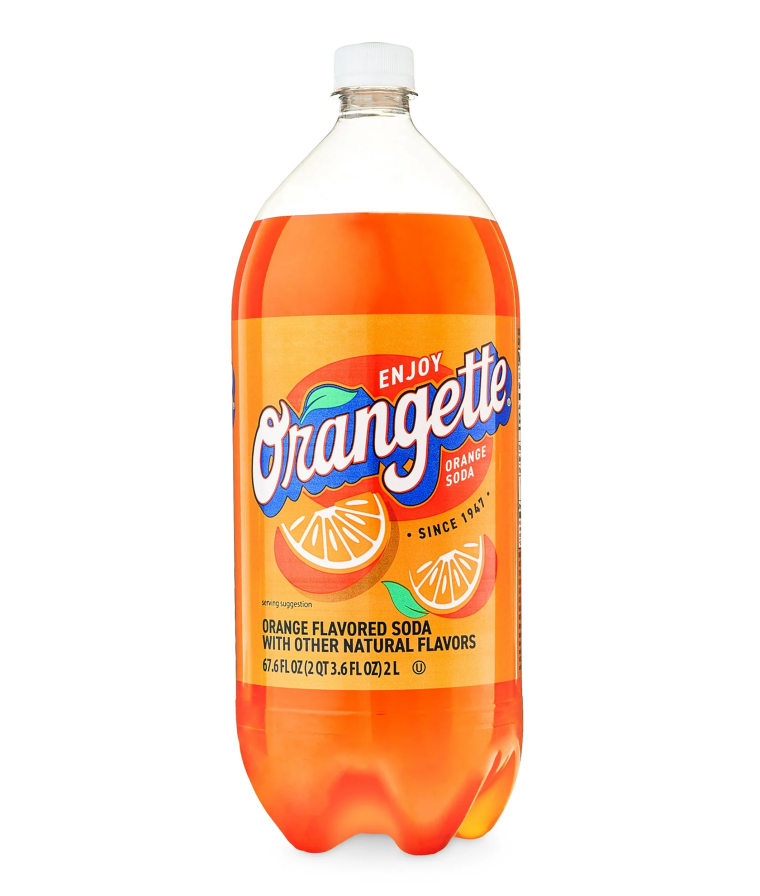The US Food and Drug Administration is banning the use of a food additive known as brominated vegetable oil after the agency concluded it is no longer safe to consume.
Brominated vegetable oil is a stabilizer used in citrus-flavored beverages and was previously authorized by the FDA for use in small amounts of 15 parts per million or less. However, not many products in the United States still use brominated vegetable oil, according to the FDA.
In November of last year, the FDA first proposed that it would ban BVO. The food additive was banned in the United Kingdom in 1970, followed by the European Union in 2008, according to the Center for Science in the Public Interest, an independent food and health watchdog organization. India and Japan have also banned this ingredient.
What is brominated vegetable oil?
Brominated vegetable oil, also known as BVO, is an oil that has been modified with bromine, a naturally occurring chemical element, according to the FDA. It is used as a food stabilizer mainly in citrus drinks to keep the flavor from separating and floating to the top.
BVO was once on the FDA’s list of ingredients generally considered safe, but was restricted to use only in products containing food flavoring after extensive toxicity studies by the Canadian Food and Drug Administration in 1969 , according to CSPI.
On July 3, the FDA revoked the regulation authorizing the use of BVO in foodstuffs.
Why is brominated vegetable oil banned?
The FDA said it banned the brominated vegetable oil after “results of studies conducted in collaboration with the National Institutes of Health (NIH) found the potential for adverse health effects in humans.”
More specifically, these were animal studies that found BVO had “toxic effects on the thyroid gland,” Thomas Galligan, Ph.D., chief scientist for food additives and supplements at the Center for Science in the Public Interest, tells TODAY.com .
The ban takes effect in the US on August 2, 2024. After that, companies will have one year to reformulate, relabel and stop selling products containing BVOs.
Which sodas contain BVO?
“Most major (soda) brands have already removed BVO from their formulations,” says Galligan.
That said, there are some drinks on the market that contain BVO, such as Sun Drop, made by Keurig Dr Pepper.
“We are actively reformulating Sun Drop to no longer include this ingredient and will remain in compliance with all state and federal regulations,” a KDP spokesperson told TODAY.com in an emailed statement.
TODAY.com also identified a soda available for purchase at Walmart that contains BVO, Great Value Orange Soda.

“We are aware of the FDA’s recent action regarding the use of brominated vegetable oil (BVO) in food. Walmart has been working with private label suppliers to reformulate products. Currently, there are very few private label items Walmart that still contain BVO, and we expect them to be reformulated before the FDA compliance date,” a Walmart spokesperson told TODAY.com via email. (Great value is a Walmart brand.)
Tips to tell if soda is made with BVO
To determine whether a soda contains BVO, Galligan suggests first looking at the ingredients list, which is required to indicate whether the drink contains BVO. It means “brominated vegetable oil” or “brominated” and a specific type of oil, such as soybean.
A few other things to watch out for to avoid BVO soda, according to Galligan:
- It is most common in citrus-flavored drinks.
- If the drink appears cloudy throughout the bottle, it may contain BVO.
- Generic, non-brand sodas are more likely to have BVO than name brands.
- If you’re drinking fountain soda at a restaurant, they usually carry name brands, so the risk of him getting BVO is lower, but ask a restaurant employee about the brand and ingredients if you’re concerned.
Do beverages other than soda have BVO?
Galligan says BVO is commonly found in sodas, but he “can’t say for sure” that other drinks don’t contain it. So he recommends double-checking the label before buying any citrus-flavored drink.
“If it’s a citrus-flavored drink that’s also kind of cloudy and off-brand, those are your cues that you should probably return that bottle and take a look at the ingredients list.”
Not a concern with 100% fruit juices, he adds.
Do Coca-Cola and Mountain Dew contain BVO?
No, Coca-Cola does not contain brominated vegetable oil, according to Coca-Cola.com.
And no, Mountain Dew does not have BVO in its ingredient list, according to its manufacturer, PepsiCo.
In fact, PepsiCo and Coca-Cola no longer use BVO in any of their products, NBC News reported.